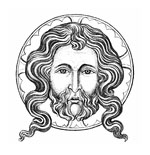
Finding the Christ in His Apostles
THE CULMINATION OF THE QUEST
“Men are mirrors, or ‘carriers’ of Christ to other men. Usually it is those who know Him who bring Him to others.” — C.S. Lewis
Some years ago, I took a graduate-level course on “Modern Christology” at the Dominican School of Philosophy and Theology, one of nine schools that make up the Graduate Theological Union in Berkeley. I came to the course not only as a person of faith but as a scholar who is trained in and had taught epistemology (the nature and domains of truth) and the philosophy of science (principles and methodology of scientific inquiry).
“Ology” comes from the Greek word logos, which means the “study of” something. Simply put, Christology is the systematic study of Jesus Christ.
Modern Christology is a product of the Enlightenment and is distinguished from the pre-modern variety in its purpose and intent. Instead of studying Christ as the object of religious devotion or faith by, say, exploring the Trinity (that three Persons are in one God) or the hypostatic union (that Jesus has two natures, both divine and human), modern Christology means to study Jesus as a figure in history. In other words, modern Christology seeks to know “the historical Jesus,” which means Jesus the man, instead of Jesus the Christ.
More than that, asserts Dominican priest and theologian Edward Krasevac, historical reconstructions of Jesus have regularly been put forward as challenges to faith. Joseph Cardinal Ratzinger, for his part, said in a 1996 speech that “the identification of only one historical person, Jesus of Nazareth, with…the living God, is now relegated as a relapse into myth. Jesus is consciously relativized as one religious leader among others.” The result, as Catholic theologian Edward Schillebeeckx once observed, is that traditional Christology “has fallen apart in our time” to ruinous effect. To wit, a 2002 survey found that one-third of the clergy in the Church of England doubted or disbelieved in the physical resurrection of Christ — the principle tenet of the Christian faith.
You May Also Enjoy
The intellectual integrity of Flavius Josephus remains a model, not only for Jews, but for all who strive to enrich the world of scholarship.
Throughout Ratzinger/Benedict XVI's theological career and pontificate, the Person of Jesus Christ has always been at the heart of his teaching.
Two events recorded in history — among many others — may be confidently accepted as…

